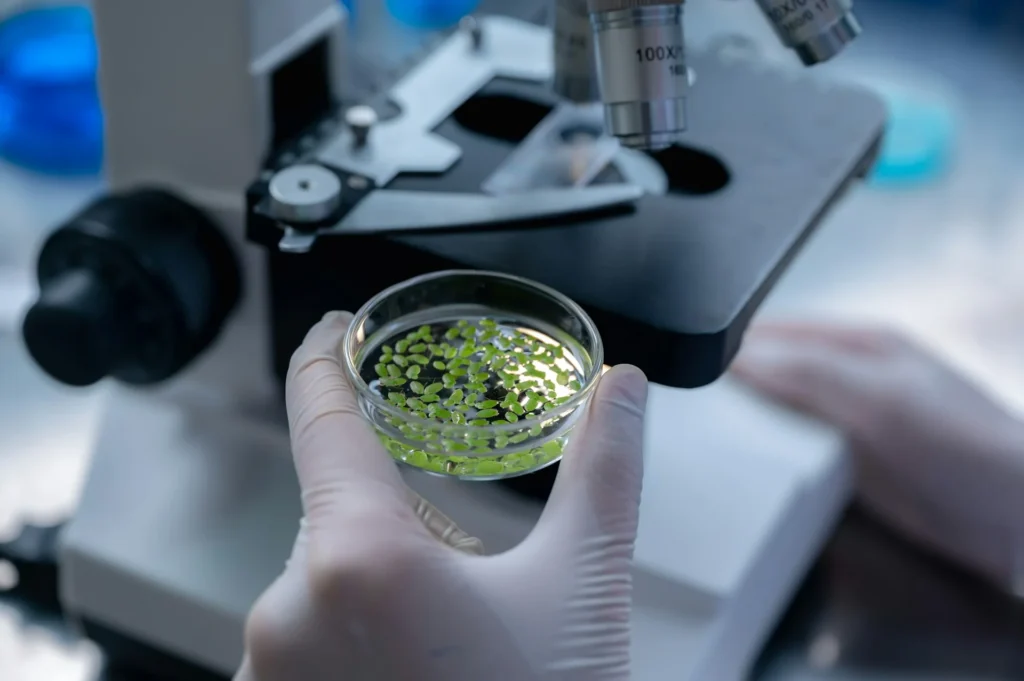Since the early years of the 21st century, the European Community’s agribusiness sector has radically changed direction, moving from a policy focused solely on production drive(food security) to an approach that puts consumer health and food safety(food safety) at the center of the food circuit.
This change in approach was mainly caused by the “food scandals” that occurred in the late 1990s.
Some of the most egregious cases include the so-called “mad cow disease” (BSE), a disease that spread in the United Kingdom due to the feeding of cattle, herbivorous animals, with infected animal protein to promote weight gain, and the death of chicks, which occurred in Belgium, caused by high levels of polychlorinated biphenyls and dioxins in eggs and tissues caused by the use of waste oil from electrical transformers as a component of feed.
These events have highlighted the need to adopt a more stringent European food policy that can prevent and manage risks along the entire production chain.
European regulatory evolution toward food safety: regulation 178/2002 and the birth of EFSA
The first thoughts on the new food safety-based approach date back to 1997 with the Commission’s Green Paper on European Food Law. However, it was not until the 2000 White Paper that a concrete strategy was outlined, based on the traceability of products along the supply chain and the introduction of an early warning system in cases of danger. These documents laid the foundation for the Regulation No. 178/2002 (General Food Law), the current regulatory pillar in food safety. The act, from its title, highlights its threefold function: to define the general principles of food law, to establish procedures in the field of food safety, and to establish the European Food Safety Authority (EFSA).
The role and functions of EFSA
Based in Parma, EFSA is a European agency that operates independently of the European Commission, the European Parliament and member states. As the body in charge of risk assessment in the food chain, it is responsible for providing scientific advice and technical support not only with reference to European legislation, but also for the Member States, in relation to all those areas that have a direct or indirect impact on food and feed safety. Indeed, EFSA’s area of expertise ranges from human nutrition to the protection of animal and plant health and welfare.
The Agency’s tasks also include collecting and analyzing data that enable risk characterization and surveillance, providing scientific opinions in all cases required by EU legislation, and taking action to identify emerging risks.
The Authority is composed of the following bodies:
- The executive director: legal representative of EFSA, is appointed by the board.
- The Board of Directors: composed of 38 members and 36 alternates, appointed on the basis of their experience and expertise in the field of food chain law and policy, ensures that the Authority performs its functions and carries out its tasks efficiently.
- Advisory Forum: composed of representatives of national food safety bodies from all EU member states, it plays a crucial role in facilitating collaboration between EFSA and the Competent Authorities of individual states. Members use the forum to advise EFSA on scientific issues, its work program and priorities, and to identify emerging risks as early as possible. Members aim to share scientific information, pool resources, and coordinate work programs with the Authority.
- The Scientific Committee and Scientific Panels: formulate scientific opinions, each within the sphere of its competence. The Scientific Committee, in particular, ensures the consistency of the procedures for formulating scientific opinions and the harmonization of working methods, as well as dealing with the formulation of opinions on multisectoral issues that involve the expertise of several Scientific Panels or that do not fall within the competence of any specific Panel. The committee is composed of the chairs of the Scientific Panels and six independent experts not belonging to any Panel.
Scientific opinions
EFSA’s most distinctive activity is the preparation of scientific opinions, which, as just noted, are prepared by the Scientific Committee or one or more Scientific Panels. Opinions can cover a plurality of areas including risk assessment, analysis of general scientific questions, or evaluation of an application for authorization to place a product or substance on the market(as explored in more detail in the section “The Novel Food Authorization Procedure ” in the article on cultured meat).
Opinions can be drafted in response to requests from the European Commission, the European Parliament or member states, or they can be formulated on the Authority’s own initiative. The latter possibility highlights EFSA’s autonomy in the exercise of its functions, allowing it to draw attention to issues it considers to be priorities for the protection of food safety.
EFSA’s Criticality Profiles.
Despite EFSA’s crucial role in ensuring food safety in Europe, some aspects of its work have come under criticism over the years. In particular, since the entry into force of Regulation 178/2002, there has been a public demand for greater transparency in risk assessment processes. Indeed, the public perception of EFSA’s actual independence and the scientific quality of its assessments has been questioned, especially in a context of growing distrust of institutions.
These concerns were also compounded by practical problems, such as the difficulty in finding new experts on the scientific panels, the fact that they mostly come from certain geographical areas, and the general reduction in funding for EFSA. In response to these critical issues, the Regulation No. 1381/2019 intervenes to change the composition of the Management Board and Scientific Panels and introduce new rules to improve the transparency, independence and reliability of scientific studies, thus initiating what is described as “a new phase” of European legislation. In line with what the new Regulation says, the Authority itself has also launched the so-called 2020 strategy to ensure the independence of scientists, avoid conflicts of interest and improve risk communication to the public.
Conclusion
EFSA has played and continues to play a key role in ensuring food safety in Europe, addressing the complex challenges associated with risk assessment. However, the critical issues that have emerged highlight the need for continued and focused efforts to strengthen public confidence in its work.
With the publication of Strategy 2027, EFSA is preparing for future challenges by committing to further improve transparency and independence to ensure ever-higher standards.







